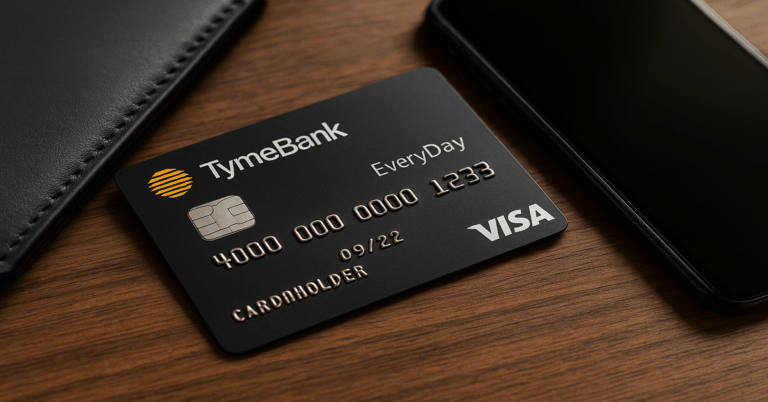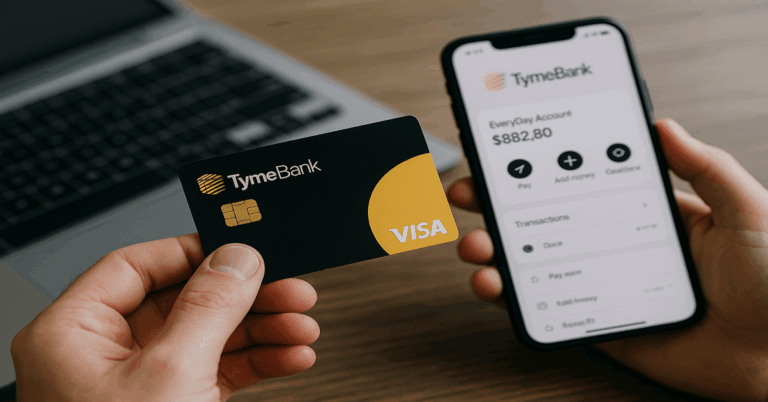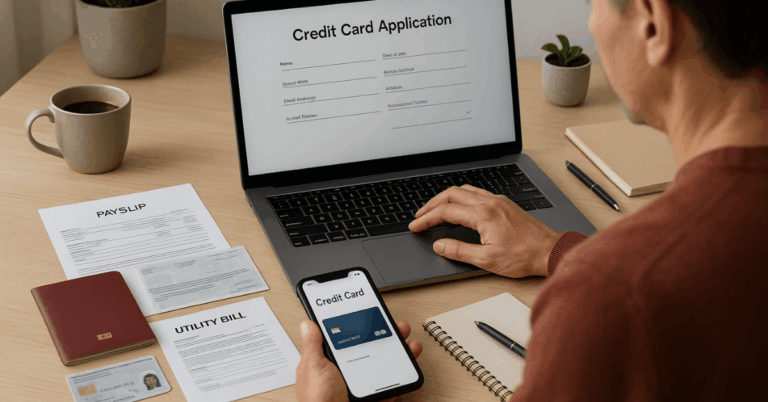The Mission Lane Credit Card helps individuals with limited or damaged credit access an unsecured line without hidden fees or deposits.
While it lacks rewards, its simplicity, prequalification speed, and reporting to all three major bureaus make it a useful tool for rebuilding credit fast and transparently.
What Is the Mission Lane Credit Card?
This Visa credit card is issued by Transportation Alliance Bank (TAB Bank) or WebBank. Mission Lane LLC provides account services but isn’t a lender or bank.

The product targets individuals with poor to fair credit, offering unsecured access and monthly reporting to Experian, Equifax, and TransUnion.
Who Should Consider It
This card fits individuals:
- With no current access to unsecured credit
- Looking to avoid a security deposit
- Wanting fast prequalification with no impact on score
It’s not suitable if you want cash back or travel perks. But it’s one of the simplest tools to build a clean credit history when used responsibly.
Credit-Building Features
Mission Lane’s card emphasizes usability over perks. It’s designed to get you started, with predictable behavior rewarded over time.
Credit-building highlights:
- No security deposit required
- Reports to all three major credit bureaus
- Eligible for automatic credit limit reviews in as few as 7 months
- Payment history impacts credit score positively if managed well
The Mission Lane credit limit increase process happens automatically if your account remains in good standing. You don’t need to request it manually.
Mission Lane Credit Card Benefits
Though limited in perks, the card carries functional advantages:
- $0 fraud liability protection from Visa
- 24/7 support for lost or stolen cards
- 24/7 roadside dispatch (pay-per-use)
- Support for digital wallets on mobile
These services are standard but necessary. The Mission Lane mobile app also simplifies usage and monitoring.
Rates and Fees
Interest and fees depend on your credit profile. Here are the current figures:
- Annual fee: $0 to $59
- APR (variable): 19.99% to 33.99%
- Foreign transaction fee: 3%
- Cash advance fee: $5 or 8% (whichever is higher)
- Late/returned payment fees: Up to $41
- Minimum interest charge: $0.50
There’s at least a 23-day grace period if balances are paid in full monthly. Paying on time avoids all interest charges. Payment allocation prioritizes balances with the highest APR.
Application Process
The Mission Lane Visa prequalification takes under 60 seconds and doesn’t affect your credit score. It evaluates income, credit, and housing to determine eligibility.
Approval triggers a hard credit inquiry. If accepted, your account will be issued by TAB Bank or WebBank. Mission Lane handles servicing.
Pros and Cons
Advantages:
- No security deposit credit card
- Simple approval process
- Fast prequalification with no credit impact
- Reports monthly to three bureaus
- Consideration for credit line increases
Disadvantages:
- Possible annual fee (up to $59)
- No welcome bonus or rewards
- High APR for subprime applicants
- Lacks tools like credit score tracking
This is a credit card with no rewards, but that aligns with its build-purpose approach.
Comparisons With Other Credit-Building Cards
Use this quick comparison to weigh deposits, fees, rewards, and credit requirements.
| Card Name | Deposit Needed | Annual Fee | Rewards | Target Credit |
| Mission Lane Credit Card | No | $0–$59 | None | Fair (300–670) |
| Discover it Secured Credit Card | Yes ($200 min) | $0 | Up to 2% cashback | Limited / Poor |
| Capital One Quicksilver Secured | Yes ($200 min) | $0 | Up to 5% cashback | Limited / Poor |
| Petal 2 Cash Back No Fees Visa Card | No | $0 | Up to 1.5% cashback | Fair / No Credit |
An unsecured credit card for bad credit like Mission Lane gives access without upfront cost. But secured cards often offer better long-term value if you can afford the deposit.
When It’s Worth It
Best suited for rebuilding phases and thin files, where fast access and no deposit matter more than perks:
- No access to traditional credit cards: Useful after denials due to limited history, recent late payments, or high utilization. Prequalification provides a quick read on odds without a score hit.
- No desire to lock cash in a deposit: Keeps savings liquid for emergencies instead of parked in a secured card. Helpful when cash flow is tight or income varies month to month.
- Ability to avoid interest entirely: Works well if balances get paid in full every cycle. The value here lies in a clean payment history and lower utilization, rather than rewards.
- Need to start building immediately: Monthly reporting to all three bureaus supports score recovery within a few cycles of on-time payments. Potential limit reviews arrive with consistent, responsible use.
Treat it as a starter tool: run it for 6–12 months with strict pay-in-full discipline, then graduate to a no-fee card with rewards once scores improve.

When to Look for Alternatives
Consider other options if long-term value or specific features matter more than quick approval.
- Eligible for secured cards with rewards: A deposit-backed product like Discover it® Secured can return cash back and may offer a path to upgrade, making overall value stronger over time.
- Want integrated credit score tracking and education: Products that bundle free FICO/VantageScore updates and simulators provide tighter feedback loops while rebuilding.
- Prioritize lower APRs and fewer fees: Credit unions and some entry-level bank cards often carry lower rates and minimal fees, which helps if a balance might occasionally revolve.
- Require travel-friendly terms: Regular foreign purchases argue for a card with no foreign transaction fees and broader travel protections.
- Seeking 0% intro APR promotions: Balance transfers or large planned purchases fit better on cards offering introductory financing—something this product doesn’t provide.
Responsible Usage Tips
Adopt these simple habits to build credit safely and steadily.
- Keep usage under 30% of your credit limit:
Aim to keep balances below 30% of each limit; scores improve as utilization falls. Make a mid-cycle payment a week before the statement cuts to lower reported balances. - Automate full monthly payments to skip interest:
Set Autopay to “statement balance” or “full balance” and schedule it 3–5 days early. Maintain a checking buffer so payments clear and late fees never post. - Set up alerts in the mobile app:
Enable due-date, transaction, and balance-threshold alerts to prevent missed payments and spot fraud fast. Add a weekly balance reminder to nudge mid-cycle paydowns. - Watch for credit line increase notifications:
Accept increases only if spending stays unchanged; higher limits reduce utilization and aid scoring. Mission Lane reviews accounts automatically and may raise limits after about seven months of on-time use.
Conclusion
Mission Lane isn’t flashy. It won’t offer travel perks, points, or cashback. But if you’re starting over or starting fresh, it delivers reliable value with no hidden traps.
For users who want to build credit without a deposit, this is one of the more transparent cards available globally.












